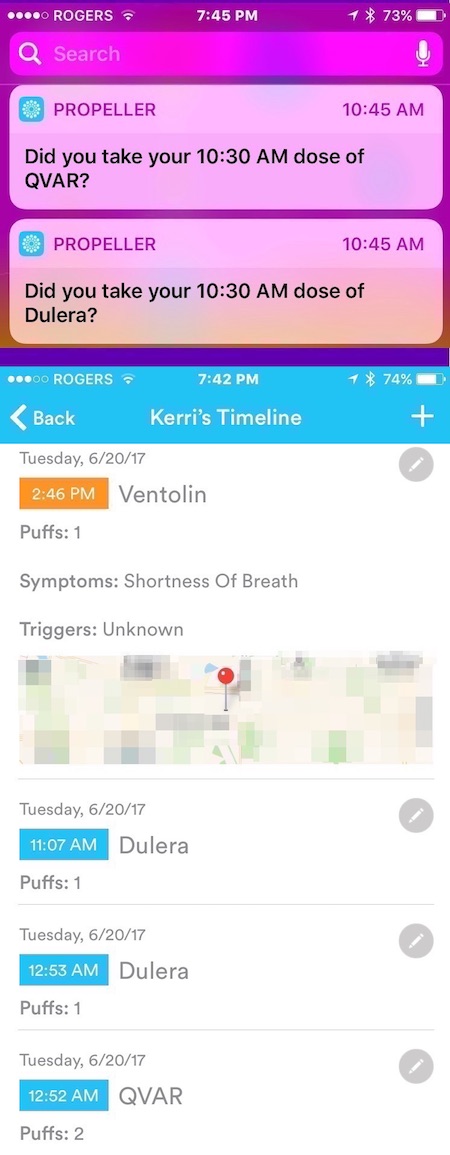Alarm Fatigue: Patient Edition
On our second last Asthma Pals session this Spring, one of the kiddos asked about how to get better at remembering to take her puffers everyday. My suggestion was to pair taking medicine with something else you do everyday—like brushing your teeth. Later on in the conversation, a boy noted that he could set an alarm on his smart watch to remind him to take his medicine before gym class (his plan was partly foiled by the fact that he didn’t know where the charger was!). Creating medicine alerts on my Pebble and/or Fitbit (yes, sometimes both!) is something I have done—and in fact, I still have a 1:00 PM Fitbit alarm go off every day to remind me to take my ADHD medicine!
Here’s the thing: if I had to quantify how often I respond to these alarms—how often my mid-day stimulant finds its way into my system—I can’t even approximate a number to it. For nearly three years, I’ve had a wearable device attached to my body vibrate mid-day, and I have become desensitized to it. It no longer triggers action, never mind prompt action.1 This, in the medical field, is called alarm fatigue. Yep, it has a name. This was the same issue with using medication reminder apps: I responded for a few weeks, and then dismissed all alarms without action.
And, remember the Pill Drill? That thing has been unplugged for weeks. The range surrounding when I was to take one medication or another, say within 2-4 hours of dosing time, meant the light always flashed at inopportune, unintended times (ie. during sleep). That annoyed me. I never had the sound turned on because, my God, it’s bad enough my alarms annoy me they don’t have to annoy my whole household—Dia, who had sound enabled said hers was like a foghorn!—and finally, I just unplugged the darn thing. What’s the point if I wasn’t really responding to it after the novelty of scanning tags and pill cases wore off within mere weeks?
I’ve tried all the solutions I know of to combat alarm fatigue. As you’ve read, I’ve used different technologies. I’ve used silent (vibe) alarms and phone alerts and my own system devised of QR code logging (which actually had no alarms) and the similar incentive of NFC tags and an Android phone, because quantified self usually motivates me for awhile, and technology like PillDrill and Propeller Health that is made for this.
Where am I at with Propeller? Here’s the thing: Propeller only reminds me if I have NOT taken my meds 15 minutes after they are “due". It decreases the alarm fatigue a bit. Alas, with that said… This still happens:
Yep, I absolutely missed my Qvar this morning. Despite all the technology, the Pill Drill alerts that are still on my phone alongside the Propeller ones, I still forgot. (I did indeed take my Atrovent but I forgot to hit the log button since it does not have a sensor.)
The reality is, I haven’t found any creative solutions for alleviating alarm fatigue myself. And it’s not like I haven’t tried. Propeller’s the closest technology I’ve come to that actually maximizes on smart tracking—and I can’t wait for more people to get in on the smart tracking game, too. Or, you know, pay me money to motivate me to start responding to alarms! That might work.
Disclosure: I’ve pestered Propeller Health about their inhaler sensors since September 2012. In April 2017, they sent me 3 Propeller sensors for free with no strings attached (possibly to get rid of me). I’m sure they felt reasonably assured I’d write about them, but I was under no obligation to, nor to do so positively. Also, it drives this Canadian bonkers that I can only get temperature in Fahrenheit.
As well, Asthma.Net has no affiliation with Propeller Health. (Or any products or things I talk about, honestly. They’re neutral and chill that way.) End disclosure.

Join the conversation